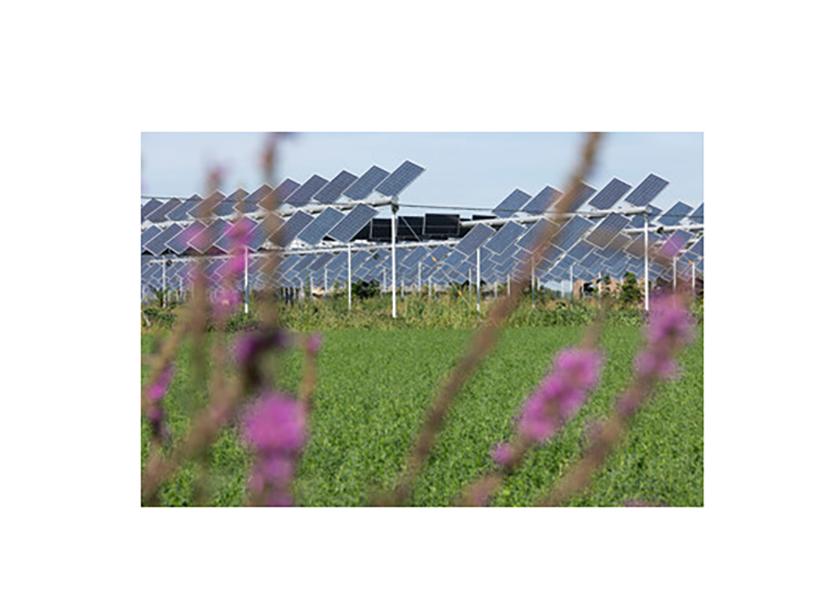FFAR to invest $1.8M in agrivoltaics — regenerative farming and solar energy

With the aim to improve regional food systems in inland Southern California, the Foundation for Food & Agriculture Research is awarding Pitzer College of Claremont, Calif., a $1,798,114 total investment to understand the benefits of agrivoltaics — regenerative farming soil practices paired with solar energy production — on a local food system, according to a news release.
Inland Southern California is known for having “cheap dirt,” or poor soil quality that is unfit for agricultural use, says FFAR. The region’s poor soil hinders the potential for a local agriculture economy, which strains the economy and creates an unstable local food system. Without consistent access to local produce, urban resilience — defined as the community’s ability to overcome shocks to the system — suffers, the release said.
Agrivoltaics, or dual-use farming, involves installing solar panels above agricultural fields to harness the dual benefits of crop production and renewable energy generation. By integrating regenerative farming soil practices with solar energy infrastructure, the study aims to improve soil health, enhance food resilience and revitalize urban food systems in inland Southern California, according to the release.
“Integrating agrivoltaics in agriculturally underutilized areas could provide new economic models that benefit farmers and the environment,” FFAR Scientific Program Director John Reich said in the release. “This farming model maximizes land efficiency, allowing for increased food production while simultaneously generating sustainable energy.”
Susan Phillips, a professor of environmental analysis at Pitzer College, and her team are studying the implementation of agrivoltaics at three small-scale farms in inland Southern California. The research team is assessing the impacts of agrivoltaics on crop production and soil health, as well as benefits to the local economy. This research aims to improve regional food systems and establish a framework and metrics that could inform land-use planning in similar climate regions, the release said.
“This technology has potential to offer a valuable land-use strategy for our region that sees farming as a way of the past,” Arthur Levine, co-principal investigator at Pitzer College, said in the release. “This type of growing could help generate local agriculture, bringing local food into the region. We can produce energy and food, on multiple scales, all while using less resources and supporting cropland conservation, farmer incomes and health."
Matching funds are provided by American Farmland Trust California, the city of Riverside, Climate Resolve, GRID Alternatives, Huerta del Valle, Inland Empire Resource Conservation District, The Nature Conservancy, Pacific Biochar Benefit Corporation, Pitzer College and Pomona College, the release said.







